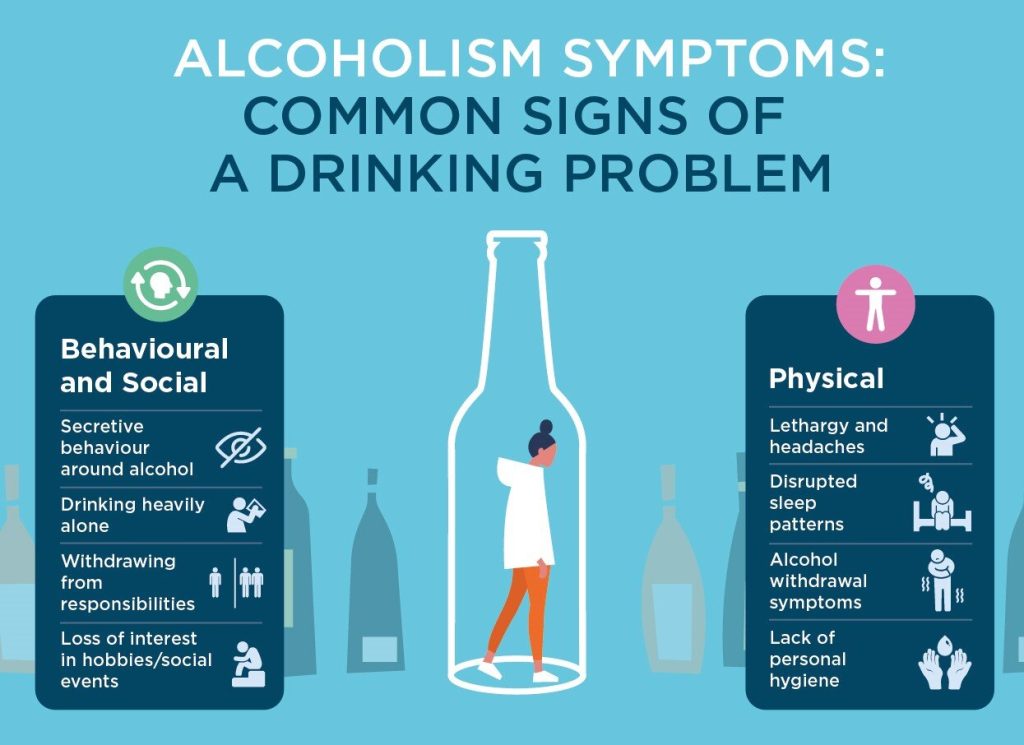Alcohol addiction, also known as alcohol use disorder (AUD), is a medical condition characterized by the inability to stop or control alcohol use despite adverse social, occupational, or health consequences. Recognizing the signs and symptoms of alcohol addiction is crucial for timely intervention and treatment. This article outlines the common indicators of alcohol addiction, helping individuals and their loved ones identify when it may be time to seek help.
Physical Signs of Alcohol Addiction
Increased Tolerance
One of the first signs of alcohol addiction is an increased tolerance to alcohol. This means needing to consume more alcohol to achieve the same effects previously experienced with lesser amounts. Increased tolerance is a physiological response where the body adapts to regular alcohol use.
Withdrawal Symptoms
Withdrawal symptoms occur when alcohol consumption is stopped or significantly reduced after a period of heavy drinking. Symptoms can include shaking, sweating, nausea, vomiting, headache, and anxiety. In severe cases, withdrawal can include delirium tremens (DTs), hallucinations, and seizures.
Behavioral Changes
Loss of Control
Alcohol addiction often leads to a loss of control over drinking. This includes drinking more than intended, unsuccessful attempts to cut down or control alcohol use, and spending a great deal of time obtaining, using, and recovering from the effects of alcohol.
Neglecting Responsibilities
As alcohol becomes a central focus, individuals may start neglecting their responsibilities at home, work, or school. This could manifest as poor performance, absenteeism, and neglecting household duties or childcare.
Psychological Symptoms
Cravings
A strong craving or urge to drink alcohol is a significant psychological symptom of addiction. These cravings can be so intense that they dominate an individual’s thoughts, interfering with their ability to focus on other aspects of life.
Continued Use Despite Negative Consequences
Continuing to drink alcohol despite knowing it’s causing physical, social, or interpersonal problems is a clear sign of addiction. This might include continuing to drink even when it leads to fights with a spouse, worsening health problems, or depression and anxiety.
Social Symptoms
Social and Recreational Sacrifices
Individuals suffering from alcohol addiction may give up or reduce social and recreational activities they once enjoyed. This might be due to the effects of alcohol on their energy levels, interest, or the need to hide their drinking from others.
Drinking in Secret or Alone
Secretive behavior regarding alcohol, such as hiding drinks, lying about the amount consumed, or drinking alone, is a common indicator of alcohol addiction. This behavior is often due to feelings of shame or the need to avoid judgment.
Impact on Relationships
Increased Conflict
Alcohol addiction can lead to increased conflict with family, friends, and coworkers. These conflicts can arise from the behavioral changes associated with addiction, such as unreliability, neglecting duties, and the aforementioned social withdrawals.
Isolation
Many individuals with alcohol addiction isolate themselves to hide their drinking habits or because of guilt and shame associated with their addiction. This isolation can exacerbate other symptoms of addiction, such as depression and anxiety.
Conclusion
Recognizing the signs and symptoms of alcohol addiction is the first step toward recovery. If you or someone you know is displaying these signs, it is important to seek professional help. Treatment for alcohol addiction may include detoxification, counseling, medication, and support groups. Early intervention can prevent the progression of addiction and help individuals lead a healthier and more fulfilling life. Remember, alcohol addiction is a treatable condition, and recovery is always possible with the right support and resources.

